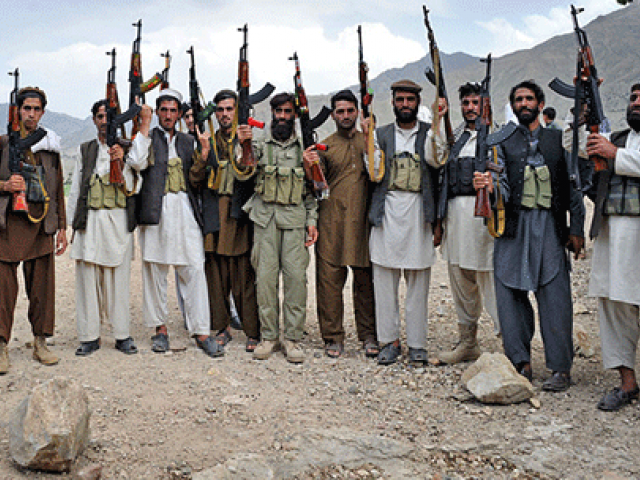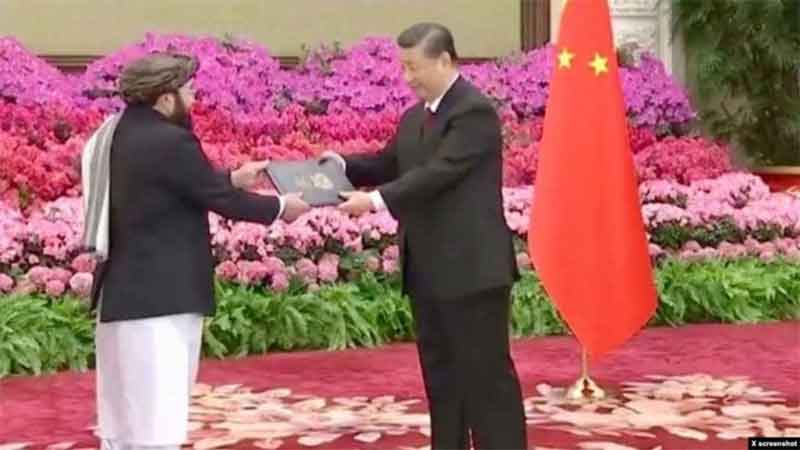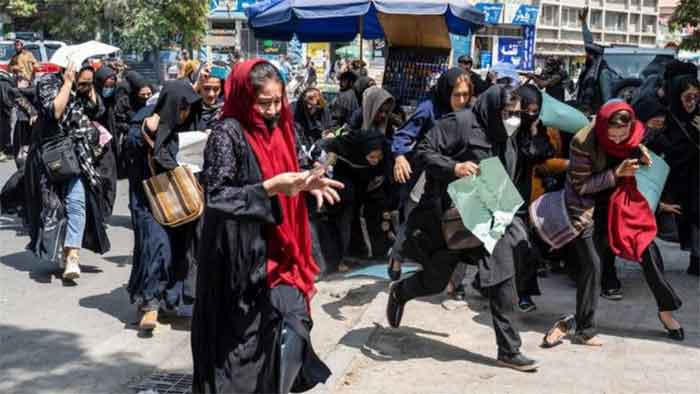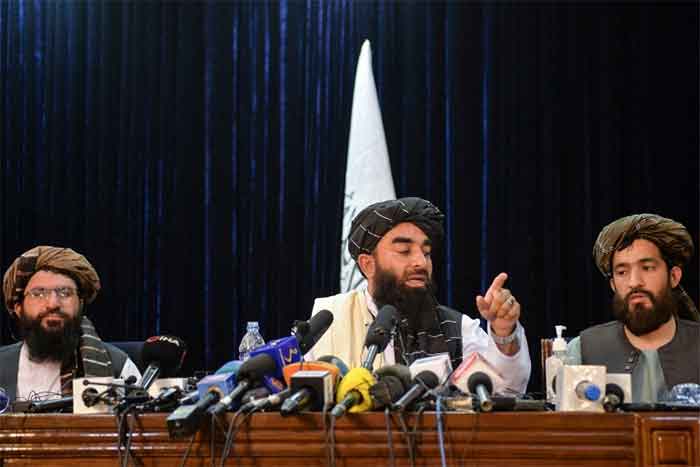
A suicide bomber killed at least 11 Pakistani army soldiers and injured 13 at an army camp in Sawat Valley on Saturday (Feb 3). An army Captain was among those who died in the bombing.
Army officials in Swat told the press that the soldiers were playing a volleyball match outside their base camp in Kabal in lower Swat valley when a young suicide bomber managed to enter the restricted area and blew himself up near the soldiers.
The Afghanistan-based Pakistani Taliban immediately claimed responsibility for the suicide attack on Pakistan’s military camp. Mohammad Khurasani, a spokesman for Tehreek-e-Taliban Pakistan (TTP), claimed they had sent a young suicide bomber, Siddiqullah to conduct the suicide attack on the military camp in Swat.
The Swat attack happened few days after the four back-to-back attacks in Kabul and Jalalabad that killed nearly 200 persons, including 14 foreigners, among them four Americans, 11 soldiers and scores of cops, government officials and civilians.
Two of those attacks in Kabul were claimed by the Afghan Taliban and two by Daesh in Kabul and Jalalabad.
In Afghanistan, the writ of Ashraf Ghani’s government is apparently limited to big cities only while the rural areas are mostly controlled by the Taliban. But now it appears that even cities such as Jalalabad and Kabul are at the mercy of militants, who can target hotels, hospitals, schools, universities, or military bases at will. So the urban centers are gradually slipping out of the government’s control just as the terrorists started their spring offensive – in winter.
The Taliban are openly active in 70 percent of Afghanistan’s districts, fully controlling 4 percent of the country and demonstrating an open physical presence in another 66 percent, according to a BBC study published on January 30.
The BBC estimate, which it said was based on conversations with more than 1,200 individual local sources in all districts of Afghanistan, was significantly higher than the most recent assessment by the NATO-led coalition of the Taliban’s presence.
However, the coalition said on January 30 that the Taliban contested or controlled only 44 percent of Afghan districts as of October 2017.
The BBC study said the Afghan government controlled 122 districts, or about 30 percent of the country. Still, it noted that did not mean that they were free from Taliban attacks.
“Kabul and other major cities, for example, suffered major attacks – launched from adjacent areas, or by sleeper cells – during the research period, as well as before and after,” the report said.
NBC: The Taliban is gaining strength and territory
According to NBC more than 16 years after the U.S. helped overthrow the Taliban in Afghanistan, the metrics kept by U.S. and Afghan officials and security experts show the Taliban is gaining territory and strength.
As Kabul reels from a deadly wave of terror attacks, the numbers tell the tale. The percentage of the Afghan population under the control of the central government has slipped, the land mass under the control of coalition forces is shrinking, and the number of Taliban fighters may have doubled in the past four years.
In 2014, U.S. officials told NBC News that the number of Taliban fighters in Afghanistan was about 20,000. Four years later, one U.S. defense official said the current Taliban strength is at least 60,000.
According to the Special Inspector General for Afghanistan (SIGAR), Resolute Support asked SIGAR not to make public the U.S. military’s most recent internal estimates of Taliban control.
The appendix to SIGAR’s January 2018 quarterly report, released Tuesday, says that Resolute Support asked SIGAR not to release either its estimate of Taliban territorial control or its estimate of the percentage of the Afghanistan population under Taliban control. The appendix quoted Resolute Support as saying the figures are “not releasable to the public.” Both metrics are unclassified.
“This is the first time SIGAR has been specifically instructed not to release information marked ‘unclassified’ to the American taxpayer,” said SIGAR in a cover letter to the report.
Newsweek: The U.S. is losing badly in Afghanistan
The U.S. and allied local security forces have failed to secure most of Afghanistan, according to a recent investigation that came shortly after the Pentagon refused to release unclassified data on the conflict for the first time ever, the Newsweek said Wednesday (Jan 31).
Despite waging nearly 17 consecutive years of war and spending up to $1 trillion, the U.S.-led attempt to defeat the Taliban has left the insurgents openly active in up to 70 percent of Afghanistan, according to a BBC study published Tuesday. The report also found that a rival ultraconservative Sunni Muslim organization, the Islamic State militant group (ISIS), controlled more territory than ever, further complicating the beleaguered effort to stabilize the country.
What a federal watchdog chief found particularly “troubling” and a “worrying development,” however, was that none of this information could be included in its mandatory quarterly report on the war. John Sopko, head of the Special Inspector General for Afghanistan Reconstruction (SIGAR), said he was instructed by the Department of Defense (DOD) “not to release to the public data on the number of districts, and the population living in them, controlled or influenced by the Afghan government or by the insurgents, or contested by both.”
A letter preceding SIGAR’s report added, “SIGAR was informed this quarter that DOD has determined that although the most recent numbers are unclassified, they are not releasable to the public.”
SIGAR said it is the first time the watchdog was blocked from releasing this information, on which it has reported since January 2016, and it was the first time ever “that SIGAR has been specifically instructed not to release information marked ‘unclassified’ to the American taxpayer” since it was created by Congress in 2008 to monitor the already extensive U.S. role in the conflict. SIGAR was deeply critical of the Pentagon and said the public should be especially concerned because trends had historically painted the picture of an increasingly unsuccessful and costly war effort.
Trump rules out talks with Taliban
However, President Donald Trump on Monday (Jan 29) ruled out quick talks with the Taliban, following a wave of bloody large-scale attacks in the Afghan capital Kabul.
“I don´t think we are prepared to talk right now,” Trump said, throwing into question Washington´s strategy of pushing the group toward the negotiating table.
“We don´t want to talk with the Taliban,” Trump said. “They are killing people left and right, innocent people.”
He added: “There may be a time but it´s going to be a long time.”
Commenting on Trump’s statement, Pakistan reiterated that Islamabad supports all peace initiatives to resolve Afghan problem as there is no military solution to Afghan conflict.
Foreign Office spokesperson Dr Muhammad Faisal said “all sorts of weapons and ammunition were used in Afghanistan during the last 70 years but no substantial achievement was made in achieving peace.” “Afghan and other issues can only be addressed through dialogue as military solution has totally failed.”
The spokesman said Quadrilateral Consultative Group involving Pakistan, Afghanistan, China and the United States is the most appropriate forum to help take the Afghan owned and Afghan peace process forward.
“Pakistan’s concern about Afghan issue should also be addressed,” the spokesman asserted.
About the possible outcome of the Kabul process next month, Dr. Muhammad Faisal said it depends on the attitude of the Afghan government.
He said there are issues like repatriation of Afghan refugees to their homeland with dignity and honor, exponential rise in drugs and poppy cultivation and use of the drug money to fuel the war economy and attacks on Pakistan side from Afghan soil.
The Taliban responded to Trump’s comments, a Taliban statement said: “The true authority of war and peace is not with the Kabul regime, but with the American invaders.”
“Their main strategy is to continue war and occupation,” Zabihullah Mujahid, a Taliban spokesman said in a statement reported by Reuters. “Donald Trump and his war-mongering supporters must understand that every action has an equal and opposite reaction. If you insist upon war, our mujahideen will not welcome you with roses.”
Abdus Sattar Ghazali is the Chief Editor of the Journal of America (www.journalofamerica.net). He is the author of several books including Islam & Muslims in the 21st Century published in 2017.
















































